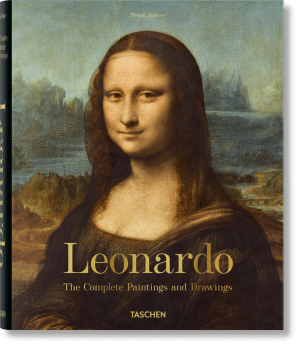“Life, Liberty and the pursuit of Happiness.” With these masterful seven words, the founders of the United States of America encapsulated humanity’s unalienable Rights.1 We may think these words in the US Declaration of Independence grant permission to do whatever we please, but “freedom,” the watchword of US Independence Day, is found nowhere in the document. Nor is there any reference to personal freedom.
“Wait,” you say, “‘Liberty’ is the reference to personal freedom.” Sort of, but not quite — and certainly not do-as-we-please freedom. Liberty does not stand alone; it is in context of the other two, and that makes a world of difference.
There’s more: The document is not personal at all. From the first sentence, with “one people,” to its chilling closure, “we mutually pledge to each other our Lives, our Fortunes and our sacred Honor,” it is a corporate document. Our unalienable Rights are in context of “a free people” — a society, a community. “We.”
In community, Liberty is qualified and complex. Pursuing my Happiness without restraint, I will eventually collide with your pursuit of Happiness — and this comes to pass long before we approach any question of whether your Life interferes with my Happiness. How, then, is pursuit an unalienable right when resolution of the collision demands that either you or I be alienated from our intended Happiness?
- One would be happier if another saw their manner of life as normal and good; another sees norms in naturally occurring embodiments.
- One would be happier with certain tissues and their implications removed from their bodies and lives; another sees a differing timeline for Life, and thus for community and mutual pledges.
- One equates religion with theism, thus happily seeing in the Establishment Clause2 a mandate to eliminate from the public square any appearance of or reference to theism;What does "freedom" mean when these and many other such dramatic differences inevitably impinge on the Happiness, Liberty, and even Life of those among us? another, for whom religion is any “cause, principle, or system of beliefs held to with ardor and faith,”3 such suppression — and its resulting singularity of public metaphysical views — is precisely what the Establishment Clause aimed to prevent.
What does “freedom” mean when these and many other such dramatic differences inevitably impinge on the Happiness, Liberty, and even Life of those among us? Whose Happiness shall prevail? How shall we decide when speech or action is a preference or is indeed against the Laws of Nature and thus to be universally suppressed and silenced “with prejudice,” as the legal term puts it? What did we promise when we pledged to each other our Lives, Fortunes, and sacred Honor?
The most important word in the Declaration is not “free” — it’s “mutually.”
Liberty stands only when my pursuit of Happiness encompasses, with mutual respect, the Life and Happiness of all in society. Otherwise, my liberty has devolved into license; my honor into my debasement.
Freedom is not actually the central thing of beauty in a representative democracy, it’s freedom giving space for civil collaboration across radically diverse lines to build a society where respect does not mean agreement, value differences are not phobias, every life is valued, every right is a responsibility, and tolerance is seen for what it is: a cheap and diminutive stand-in for rich and deep love for every human around me.
A path forward
What does this mean for you and me and public discourse and policy? I submit that it means:
- To build society when there are profound differences, the starting point is profound respect born of human love.
- Values cannot be commanded; people and cultures advance and grow only through respectful interchange and influence.4 Disrespect on my part is not justified by another’s disrespect.
- It is more beautiful to listen, and listen long, than to preach and demand another change their values.
- One group’s values are not to be forced on other groups, especially not in the name of progress, since the forcing is in itself regress — and fascist.5
- Really there are no groups, only individuals with similar, disparate, and overlapping attributes, values, and ways of seeing the world.
- Denouncing and silencing in the name of diversity and inclusion is directly antithetical to diversity and inclusion.
- The bar is very high for, and near
BudgetPet
World — everything for health and happiness of the fuzzy onesuniversally against, the formation of blessed doctrine (secular or theist) against which heretics are to be denounced, excluded, silenced, or cast out.
- Public policy is crafted to recognize and make space for simultaneous co-existence of profound and widespread value differences, versus crafted to require or promulgate only one view or selected views.
- Public policy is crafted:
- First to protect and provide for those profoundly unable to protect and provide for themselves,
- Second to protect all from sundry abuses of power, whether its source be found in office, might, or finance,
- Third to foster the ability of each and all to provide for their own and to receive the benefits of their toil,
- Fourth to align the burdens of policy with its beneficiaries and advocates, and
- Fifth to manage the affairs of state to maintain strength of society and thereby its ability to contribute to and assist in building a prosperous, secure, and stable world.
Endnotes
1 Please note: This piece is not and should not be taken as an endorsement of every word of the Declaration.
2 The Establishment Clause of the US Constitution, found in its first amendment, reads "Congress shall make no law respecting an establishment of religion, or prohibiting the free exercise thereof…"
3 The notion of religion as "belief with ardor", being Merriam-Webster's definition 4, is readily seen in the vigor with which many atheists argue their views and in the faith required to believe science has power of any kind to speak of things beyond the physical world.
4 A quote from Polish philosopher Leszek Kolakowski is apropos to this point: "There has never been, and there will never be, an institutional means of making people [kindred]."
5 See again Merriam-Webster and "forcible suppression of opposition" in the definition of fascism.







Excellent thoughts.